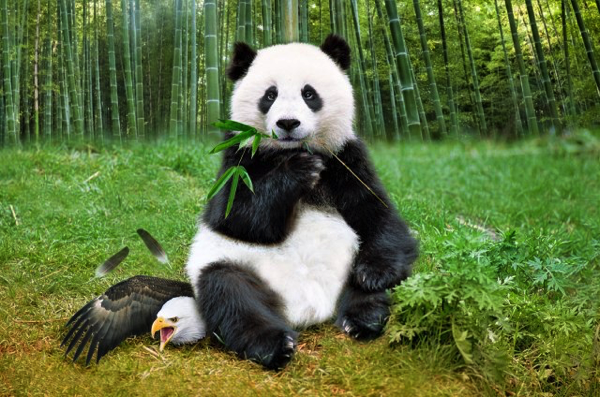China Has Overtaken the U.S. as the World’s Largest Economy | Vanity Fair: “”

When the history of 2014 is written, it will take note of a large fact that has received little attention: 2014 was the last year in which the United States could claim to be the world’s largest economic power. China enters 2015 in the top position, where it will likely remain for a very long time, if not forever. In doing so, it returns to the position it held through most of human history.
[…]
China did not want to stick its head above the parapet—being No. 1 comes with a cost. It means paying more to support international bodies such as the United Nations. It could bring pressure to take an enlightened leadership role on issues such as climate change. It might very well prompt ordinary Chinese to wonder if more of the country’s wealth should be spent on them.
[…]
Tectonic shifts in global economic power have obviously occurred before, and as a result we know something about what happens when they do. Two hundred years ago, in the aftermath of the Napoleonic Wars, Great Britain emerged as the world’s dominant power. Its empire spanned a quarter of the globe. Its currency, the pound sterling, became the global reserve currency—as sound as gold itself. Britain, sometimes working in concert with its allies, imposed its own trade rules. It could discriminate against importation of Indian textiles and force India to buy British cloth. Britain and its allies could also insist that China keep its markets open to opium, and when China, knowing the drug’s devastating effect, tried to close its borders, the allies twice went to war to maintain the free flow of this product.
Britain’s dominance was to last a hundred years and continued even after the U.S. surpassed Britain economically, in the 1870s. There’s always a lag (as there will be with the U.S. and China). The transitional event was World War I, when Britain achieved victory over Germany only with the assistance of the United States. After the war, America was as reluctant to accept its potential new responsibilities as Britain was to voluntarily give up its role. Woodrow Wilson did what he could to construct a postwar world that would make another global conflict less likely, but isolationism at home meant that the U.S. never joined the League of Nations. In the economic sphere, America insisted on going its own way—passing the Smoot-Hawley tariffs and bringing to an end an era that had seen a worldwide boom in trade. Britain maintained its empire, but gradually the pound sterling gave way to the dollar: in the end, economic realities dominate. Many American firms became global enterprises, and American culture was clearly ascendant.
World War II was the next defining event. Devastated by the conflict, Britain would soon lose virtually all of its colonies. This time the U.S. did assume the mantle of leadership. It was central in creating the United Nations and in fashioning the Bretton Woods agreements, which would underlie the new political and economic order. Even so, the record was uneven. Rather than creating a global reserve currency, which would have contributed so much to worldwide economic stability—as John Maynard Keynes had rightly argued—the U.S. put its own short-term self-interest first, foolishly thinking it would gain by having the dollar become the world’s reserve currency. The dollar’s status is a mixed blessing: it enables the U.S. to borrow at a low interest rate, as others demand dollars to put into their reserves, but at the same time the value of the dollar rises (above what it otherwise would have been), creating or exacerbating a trade deficit and weakening the economy.
[…]
America’s real strength lies in its soft power—the example it provides to others and the influence of its ideas, including ideas about economic and political life. The rise of China to No. 1 brings new prominence to that country’s political and economic model—and to its own forms of soft power.